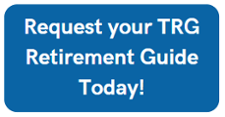RSUs, or restricted stock units, are a common method of employee compensation used by many computer businesses these days. If the underlying firm stock performs well, this type of pay may offer a significant return on investment in comparison to regular cash.
In its efforts to motivate employees to do their best work, Meta makes a point of rewarding them financially. Part of those rewards come in the form of RSUs, which have the added perk of encouraging workers to invest in Meta.
What is a Meta (Facebook) RSU?
You will be able to find out the definition and the total number of RSUs you will earn as an employee when you first receive an offer letter or receive an evaluation from Meta. That sum is stated in USD and is represented as a Meta equity grant. The grant will be converted into RSUs according to its monetary value when you officially join Meta as an employee. To get the precise number of RSUs you will receive upon joining Meta's workforce, use this easy formula:
The dollar value of your grant/Average closing stock price for Meta over the month before your first day
If you get a fractional share by following this formula, round up to the nearest whole share. Follow this example for a look at how this all works in practice: let’s assume you started working at Meta on July 1st and their average stock price in June was $175. Now, say you received a $2,000 grant. With that information, you can complete the formula:
$2,000/$175 = 11.42
Since that’s a fractional result, you’ll round up for a total of 12 shares.

When Do the RSUs Vest?
Meta’s RSU vesting schedule has three separate schedules: Vesting Schedule A, B, and C.
The initial vesting date for each of the three schedules will coincide with the first Meta vesting date following your employment. February 15, May 15, August 15, and November 15 are Meta's vesting dates. Your vests will then proceed down one of these three routes:
-
If you’re on Vesting Schedule A, you’ll continue to earn 1/16th of your RSUs each quarter over the next four years.
-
Vesting Schedule B is a bit more complicated - you’ll get 1/12th of your RSUs in the first quarter, 1/16th in the next two quarters, and 2/48th in the final quarter.
-
Finally, on Vesting Schedule C, you’ll get 5/48th of your RSUs in the first quarter. Then, you’ll receive 1/16th in the following quarters (except for the final quarter, where you’ll get 1/48th).
What Can Be Done with RSUs After They Vest?
No matter what vesting schedule you’re on, you should prepare an investing strategy. A few to consider
-
Preparing for the worst. It’s impossible to predict your financial future with 100% accuracy. If you don’t already have an emergency fund, cash from RSUs can make it easy to get started.
-
Save for a home purchase. Buying a home can be a great financial decision, and meaningful RSU vests can help accumulate the necessary down payment.
-
Putting money into a 529 account. If you have kids, there’s no better time to prepare for their higher education than now–and a 529 account can really help.
-
Be sure to make informed decisions. It is important to prioritize diversification and consult with financial professionals to make sure everything transitions smoothly.
Shoring up your 401(k). Meta provides matching retirement funds to employees. If you have extra money from vested stocks and haven’t hit your contribution limit, this is a great way to max out your 401(k).
Common Meta (Facebook) RSU Questions
Can vested Meta (Facebook) RSUs be taken away?
Vesting means you own the shares. In general, Meta (Facebook) cannot take back shares that have vested even if you leave the company.
Does RSU show up on form W2?
RSUs do show up on form W-2. The total value of vested RSUs will show up on your W-2 as taxable wages. You can elect for Meta (Facebook) to withhold taxes from your paycheck when you get RSUs that vest. This way, you don’t have to pay estimated taxes every quarter while avoiding to under-pay taxes and owing a large amount when you file during tax season.
How do I calculate the cost basis for my Meta restricted stock units?
The basis of your RSUs should be calculated by the plan that holds the RSUs. For example, if your plan holds the stocks in Fidelity, Fidelity should have your basis information in your account. You’ll be able to see your basis for each share that has vested by looking at your account statements. Your basis is the amount that each share was worth when it vested.
Can you sell RSUs at any time?
In general, you can sell RSUs as soon as they vest. In some circumstances, to avoid insider trading, there is a black out period during which time you cannot sell your shares. There are also open trading periods in which you can sell your shares. You will need to check with Meta to see if there is a black out period and how long that lasts.
Is it possible to be too highly concentrated in RSUs?
Yes, it is possible to be too highly invested in RSUs. While RSUs can be a valuable part of your compensation and investment strategy, having a significant portion of your wealth tied up in them can present risks.
Should I sell restricted stock units immediately?
Due to the way RSUs are taxed, it is generally advantageous to sell your vested shares right away. This is mainly for risk-management purposes. Because you pay income tax on vested shares as they vest, it doesn’t matter if the shares decrease in value. You already paid taxes on them, and therefore a decreased value of shares means you paid a much higher percentage of tax on them than if they were sold right away.
Another reason to sell your shares quickly is to avoid your portfolio from becoming highly saturated in one single company. It’s a good idea to have a diversified portfolio, and RSUs are not diversified because they are shares all owned with Meta.
To protect yourself against any major company downturn, as well as having to pay high taxes on shares that have decreased in value, you may want to consider selling some or all of your shares as they vest. There are circumstances in which you might want to keep some shares, but it is best to check with your financial planner to see the right plan for you.
Can you lose money with RSU?
You can lose the value of your Meta stocks in your RSUs if the price decreases after your RSUs have vested. Not only are you potentially losing the value of the stock if the price decreases, you’re also losing money on the taxes you paid on the RSUs because you have to pay those regardless of whether the shares lose value.
What happens to RSUs when you quit your job?
You lose all your unvested RSU shares when you quit your job, which is why it is important to know the vesting schedule. For the vested RSU shares that are already in your brokerage account, you can keep those since it is your money as soon as it vests.
Do you have an RSU Strategy?
One way to lower risk is to sell your RSU shares that you receive as soon as they vest. You can then invest them in a diversified basket of stocks or bonds. Diversification is a really key component in investment planning. Now, what you’re probably thinking is “it’s going to be really hard for me to get rid of these shares. They have been going down recently and I hate to sell at the bottom.” But ask yourself this: if you have $50,000 worth of money to invest now, would you place it all in one stock? Do you need the funds if you are between jobs?
Source:
-
What to do with an Early Retirement Ebook
-
RSUs Essential Facts (Schwab.com, 2022)
-
Employee Stock Purchase Plan (ESPP): What It Is, How It Works" (Investopedia, 2022)
-
What Are Stock Options? Parameters and Trading With Examples" (Investopedia, 2022)
-
Deferred Compensation" (Calpers.ca.gov, 2022)
-
Is The Mega Backdoor Roth Too Good To Be True?" (Forbes.com, 2022)
-
Social Security Ebook
-
Lump Sum vs. Annuity Ebook
-
401(k) Rollover Strategies Ebook
-
Closing the Retirement Gap Ebook
